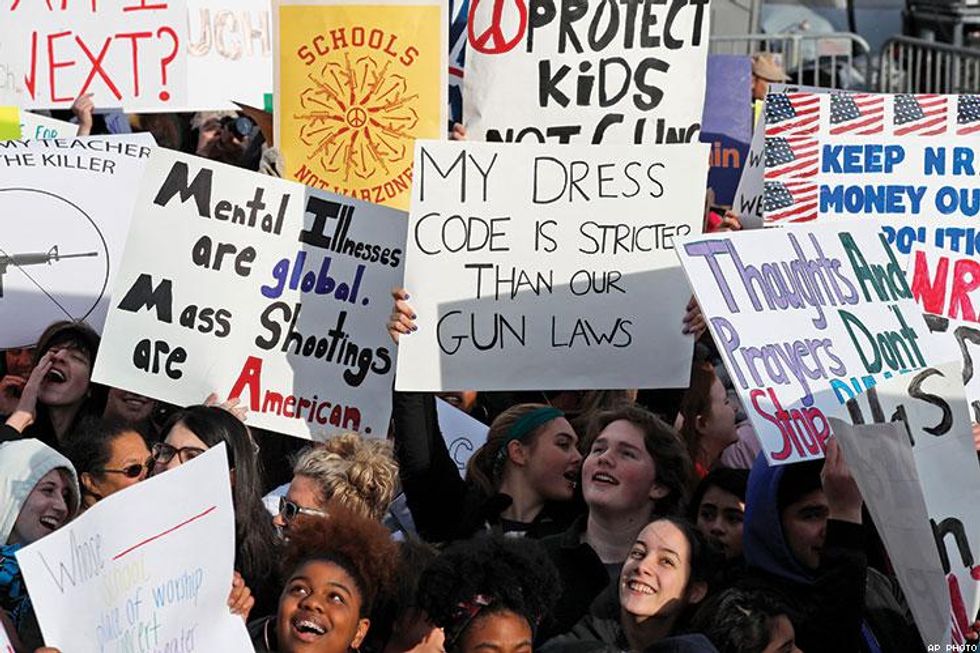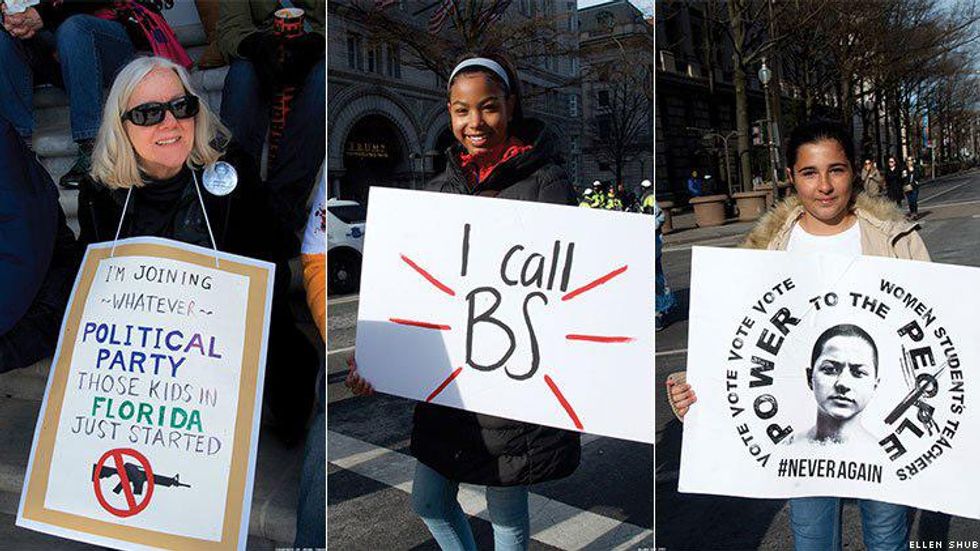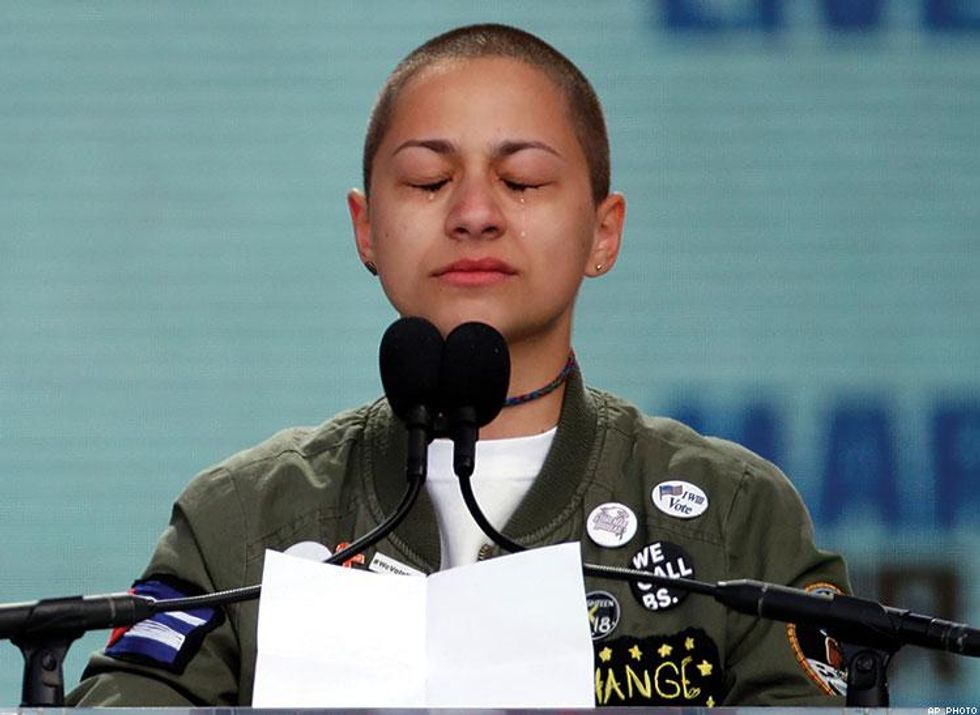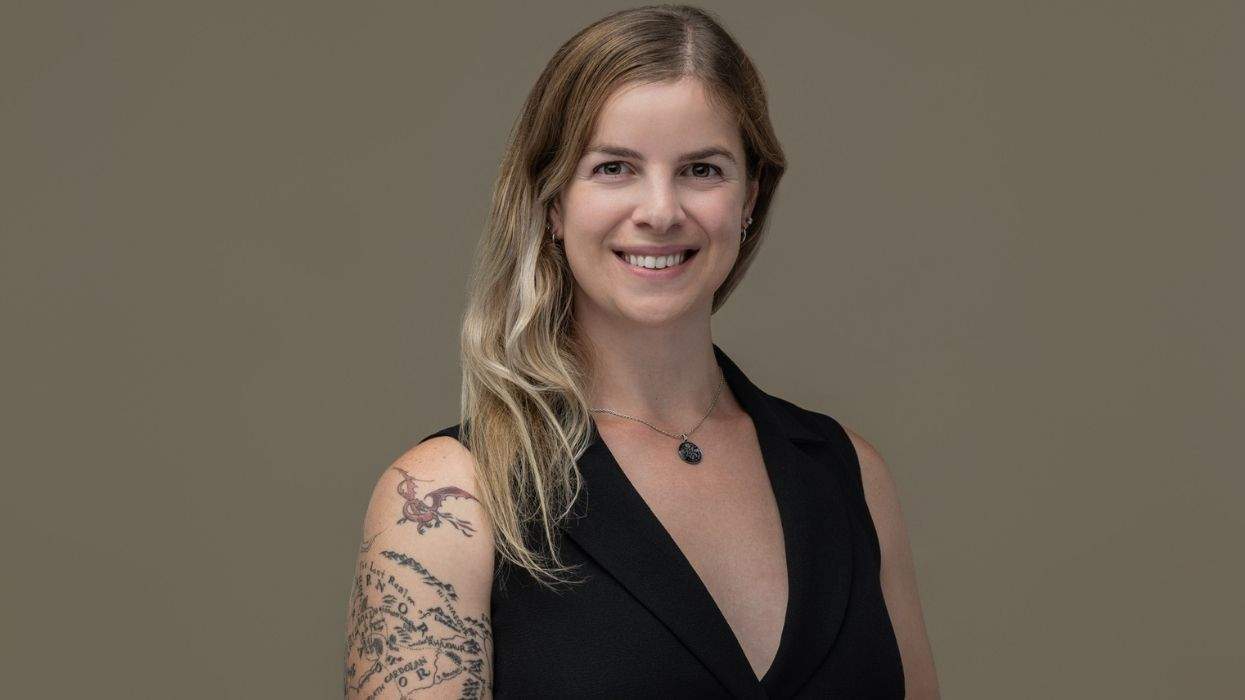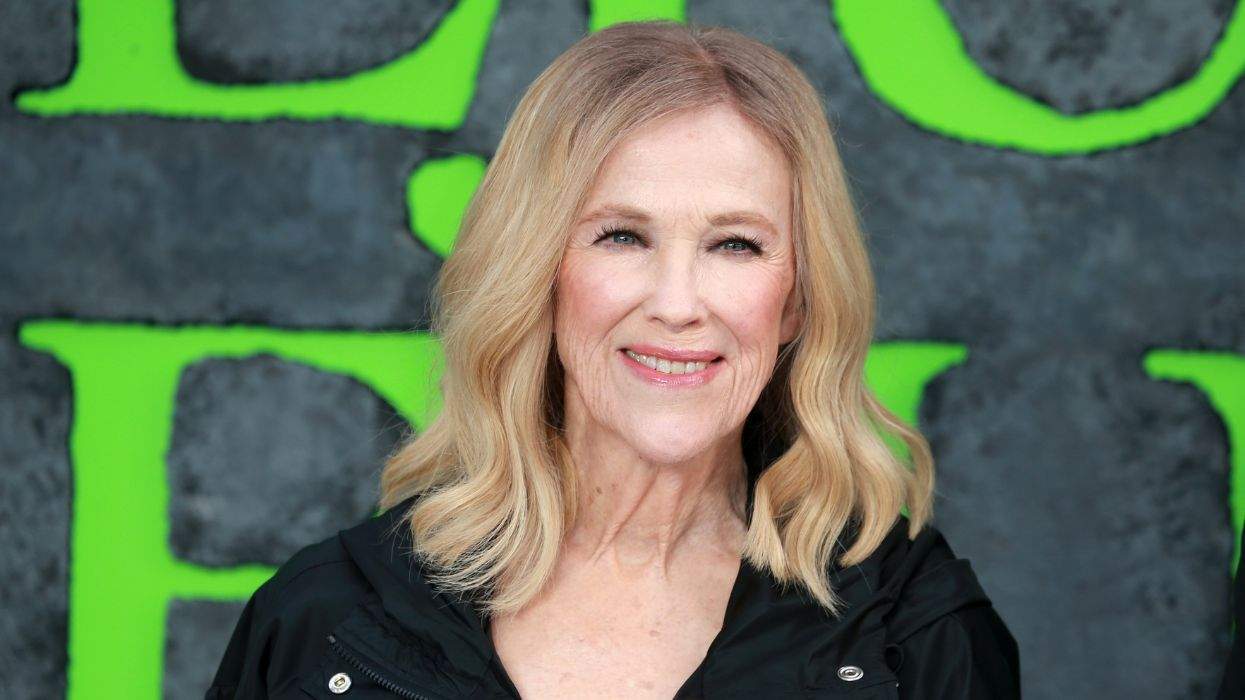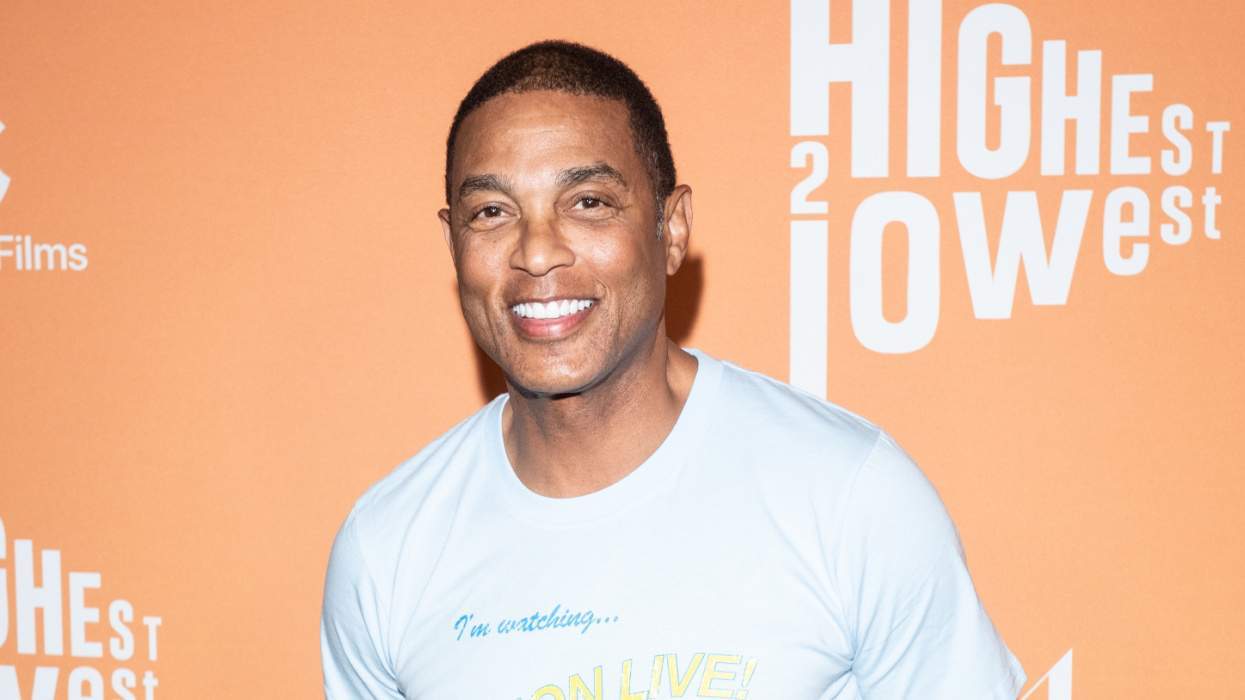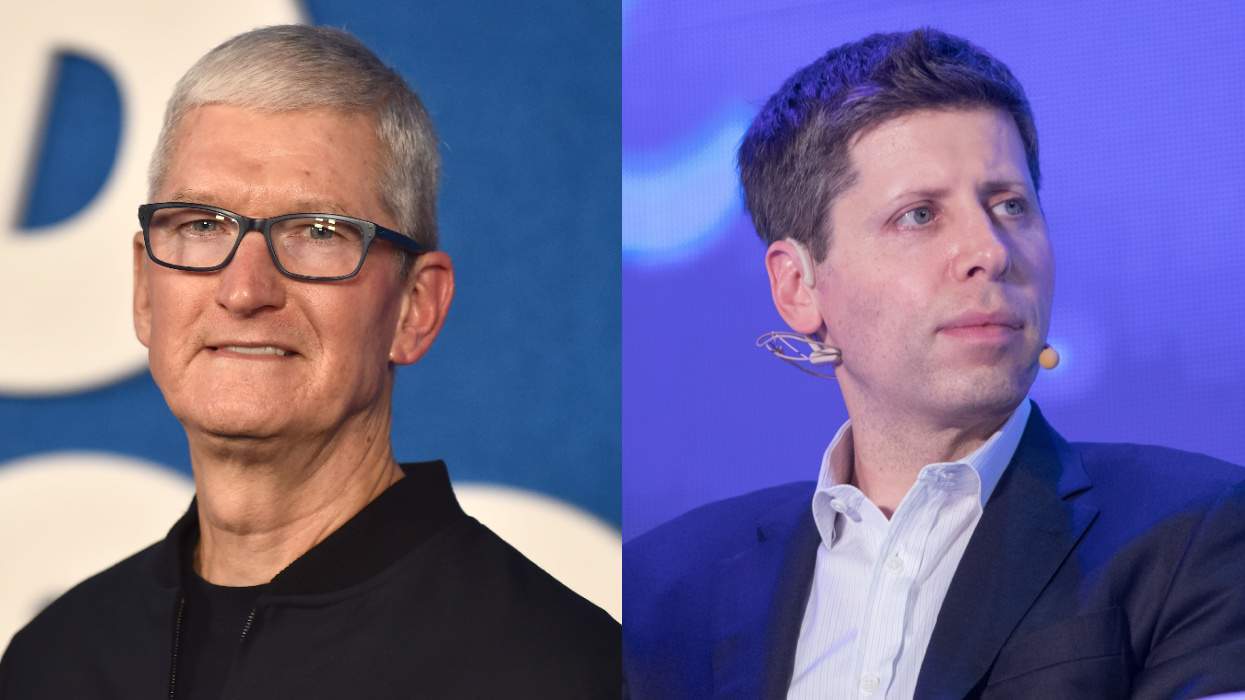Tragedy turned Emma Gonzalez into a face for the modern American protest, but long before the shooting at Marjory Stoneman Douglas High School in Parkland, Fla., brought her advocacy into the public sphere, she had already studied the history of activism in America. Now she brings lessons from the Stonewall riots to today's marches against gun violence, with the hope of bringing about long-sought-after gun control reform.
Like the LGBT rights movement, Gonzalez says, "We are showing our strength in numbers."
The Florida high school senior serves as president of the school's gay-straight alliance, where for years she gave "super-boring" presentations on the LGBT rights movement's progress through the years. She always figured she'd apply its techniques to some intersectional cause -- maybe becoming a graffiti artist targeting dams that need to be breached to restore the environment. But a more pressing mission sprang to life on February 14, as a former student burst into her high school with a legally acquired AR-15 and killed 17 people, mostly students. Survivors like Gonzalez mourned for the friends they lost, while also demanding policy changes to ensure such a tragedy never occurs again. Since then, the teens have been heralded as the most successful gun control advocates in decades. But none have earned the level of notoriety Gonzalez has.
Months after that terrifying day, the 18-year-old sounds nearly jovial to learn she's being honored as the 2018 inductee to The Advocate Hall of Fame. She's hanging out at the home of her friend David Hogg, perhaps the only other Parkland survivor to develop a visibility rivaling her own. Although it's a Tuesday afternoon, she's not in class but says she's not missing much. MSD High may have reopened 11 days after the shooting, but a return to normal still seems untenable after such a life altering event.
"There's not much going on. Some teachers are getting back to teaching but a lot of them aren't," Gonzalez says. "For the people in the movement, it feels like a waste of time to be there rather than working."
She discusses with some degree of amusement and humility how effective a messenger she has become. "For years people have been doing this before us," she explains. "But because people are paying attention to us, because we are eye-catching on camera, they are listening finally. We didn't even start the hard work. We are just tacking ourselves onto this and hoping we can use our platform."
Her mood feels far different from the way Gonzalez comes across during her star-making speeches. At a public memorial for students three days after the shooting, Gonzalez initially stood out for her Sinead O'Connor-style hairdo, but would be remembered for her angry call-and-response demand for reform, punctuated with cries to lawmakers: "We call B.S."
On March 24, the teen went onstage at the March for Our Lives in Washington, D.C., where she addressed the crowd for a mere two minutes. During the rest of her alloted time, she stood silently as seconds crawled past, marking the excruciatingly long yet painfully brief six minutes and 20 seconds it took for shooter Nikolas Cruz to end so many innocent lives. Her intent, Gonzalez tells The Advocate, had been to demonstrate the agony she and her peers felt waiting for the gunfire to stop.
While every mass shooting spurs calls for gun control, one thing separating the post-Parkland activity turned out to be a determination of Parkland students to reach beyond a single event. Gonzalez says she understands the attention on MSD High comes in part because violence seems so out of place in a mostly white, highly-affluent community that, in 2017, was ranked by the National Council for Home Safety and Security as the safest place in Florida to live.
(RELATED: The Complete Hall of Fame)
In response to the Parkland shooting, there has been a call for a "guardian program" provision that would allow more school officials to carry firearms on campus, a proposition which Gonzalez adamantly opposes. "I know many teachers who would very happily quit their jobs before working on the same grounds as an armed teacher," she says. "There's so many things wrong with it, but one of the many things is it just won't help and will only make things worse."
This March, Gov. Rick Scott signed the first significant gun control measures to pass in Florida in two decades -- raising the age to buy assault-style weapons to 21 and putting in place a waiting period, as well as strengthening background checks and committing $400 million to school safety and mental health solutions. The measure earned mixed reviews from Florida activists, and Gonzalez remains of two minds about the legislation.
"I hear a lot of people say, 'It's a Band-Aid for a bullet wound.' Nothing that has been implemented there could have prevented the shooting from happening at our school," she argues. "I, personally, am happy [the legislation] happened because we need baby steps. We're not going to get an assault weapons ban right off the bat. We need little things to get us there."
These days, Gonzalez is happy to share the stage with fellow students from communities plagued by commonplace, if not so concentrated, acts of violence. "You know, 17 [deaths] is a good week in Chicago," she says. "They deal with stuff we will probably never have to think about and we could never comprehend if we tried."
Sharing a stage with these fellow teen activists means more than spotlighting people of color and those from crime-stricken parts of America. Gonzalez wants to take lessons learned directly from the LGBT movement, and that means a show of size and force. Pride parades showed mainstream America that queer people existed in greater numbers than many imagined. Gonzalez hopes the marches demonstrate the broad support for gun control at a time when politicians seem fearful of standing up to the National Rifle Association. After all, she says, "Every time we go out there, there's more of us."
Gonzalez recalls when Alex King -- a Chicago high school student-turned-activist whose nephew was shot and killed this spring -- took the stage at the March for Our Lives and asked how many of the 800,000 in attendance suffered a direct effect from gun violence. Nearly everyone raised a hand.
An intersectional cause like gun control demands involvement from all sorts of American communities, Gonzalez says, not just for diversity's sake but because all these communities have a stake in the fight. "In the United States, diversity is usually something to encourage when it's thought of," she says. "No. We should include people because they go through it too, and they will get the positive effect of gun reform and gun safety in their communities."
She has long known that LGBT people face violent threats. Pizza Time, a favorite restaurant of the Gonzalez family, is owned by relatives of Pulse nightclub owner Barbara Poma. The Orlando LGBT hotspot witnessed the massacre that is Florida's other notorious mass shooting of the past two years. Pizza Time raised money last year for Pulse survivors and Stoneman Douglas High's GSA helped hock bracelets for the cause. Now the restaurant has gathered March for Our Lives T-shirts through Gonzalez.
"Pulse was most definitely, in part, a hate crime," Gonzalez muses. "You can call it a terrorist attack as much as you want depending on the shooter's religious beliefs, but that was a gay nightclub. He could have gone anywhere."
Gonzalez adds that there is privilege in growing up in the time and place she has, despite the tragedy to befall her school. She came out as bisexual to her creative writing class in the ninth grade. When she later told her family, it seemed a non-event that failed to disrupt dinner plans: "They took the news without blinking," she explains. Two decades ago, she knows that conversation may have proven more difficult, and she credits smartphones and social media in helping to normalize LGBT individuals.
That doesn't mean she doesn't deal with nasty comments today. Twitter and Facebook remain rife with attacks on her character, ethnicity, and sexuality. They even emanate from the halls of power: Iowa Congressman Steve King famously attacked her for wearing a Cuban flag on her jacket. But she doesn't take criticism like that seriously.
"There's always going to be bullies picking on kids," she says. "But the crusty old statements people throw at us, it's not like people think that's more acceptable. They are threatened by the numbers they saw and they are afraid of losing their positions of power."

